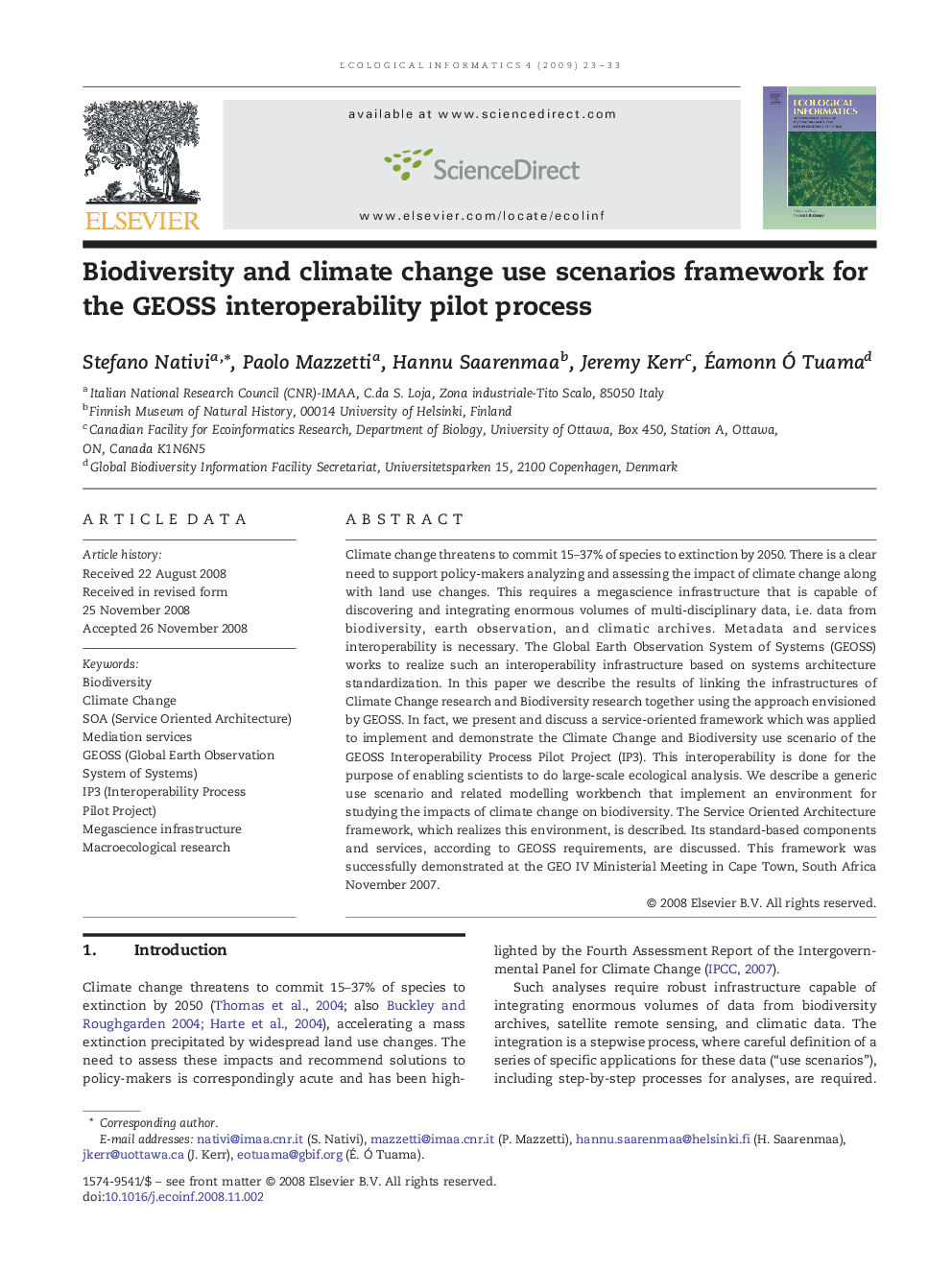| Article ID | Journal | Published Year | Pages | File Type |
|---|---|---|---|---|
| 4375370 | Ecological Informatics | 2009 | 11 Pages |
Climate change threatens to commit 15–37% of species to extinction by 2050. There is a clear need to support policy-makers analyzing and assessing the impact of climate change along with land use changes. This requires a megascience infrastructure that is capable of discovering and integrating enormous volumes of multi-disciplinary data, i.e. data from biodiversity, earth observation, and climatic archives. Metadata and services interoperability is necessary. The Global Earth Observation System of Systems (GEOSS) works to realize such an interoperability infrastructure based on systems architecture standardization. In this paper we describe the results of linking the infrastructures of Climate Change research and Biodiversity research together using the approach envisioned by GEOSS. In fact, we present and discuss a service-oriented framework which was applied to implement and demonstrate the Climate Change and Biodiversity use scenario of the GEOSS Interoperability Process Pilot Project (IP3). This interoperability is done for the purpose of enabling scientists to do large-scale ecological analysis. We describe a generic use scenario and related modelling workbench that implement an environment for studying the impacts of climate change on biodiversity. The Service Oriented Architecture framework, which realizes this environment, is described. Its standard-based components and services, according to GEOSS requirements, are discussed. This framework was successfully demonstrated at the GEO IV Ministerial Meeting in Cape Town, South Africa November 2007.
